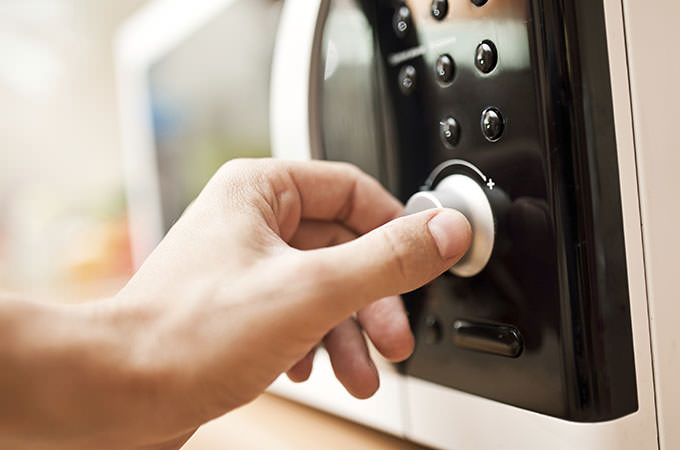
Everyone is guilty of it, throwing your food into the microwave to save time and effort of getting out the pots and pans to get dinner on the table. The real question is, what does microwaving do to your food. There are a few different things you should think about when microwaving that may or may not get you to turn away or embrace this modern technological miracle.
What does microwaving do?
Microwaving does a few different things to your food when you zap it for a few seconds. The principle that a microwave works on is that microwaves are sent into your food to speed up the particles of water in it to encourage quick heating. When the water molecules in your food are excited, heat is created, making the food you have placed inside heat up quickly.
This can however dry your food out as over exciting water molecules can cause them to evaporate.
Does it leech nutrients?
The main problem that health experts have with microwaves is that they have the serious potential to remove nutrients from your food and deposit other possibly harmful bi-products.
Microwave ovens are, of course, one of the most essential convenience items in any kitchen and many Americans cannot fathom life without them.
That being said, it is important to consider what they are doing to your food. In regards to the loss of nutrients, any amount of heating results in the loss of nutrients.
Even cooking great healthy meals on the stove can result in the loss of nutrients. However, microwaving doesn’t have the potential to remove more nutrients than traditional cooking methods.
Because microwaves heat the water molecules in your food more rapidly, this often results in greater nutrient loss. In regards to added bi-products in our food, there is only nominal research to back this claim. Until more research is done, there is little that we can do to either back or deny these claims.
Is microwaving food dangerous?
Again, until more research is done there is no way to definitively say if food that is cooked in the microwave has more dangerous bi-products than other foods we eat.
The only thing that can be said definitively for food that has been cooked in the microwave is that it cooks faster, often comes out drier, and may not be all that nutrient rich.
There are a couple of ways to make sure that the food you cook in the microwave is as healthy as possible.
The first is to of course make sure that the food is gently heated rather than rapidly heated.
Adding a small bowl of water to the microwave alongside your food can help you to heat your food gradually with steam rather than with microwaves only.
Should you keep your microwave?
In all honesty, eating foods that have been microwave cooked every now and again is not going to cause cancer or malnutrition. At most, using your microwave from time is simply going to make your life a little easier. The problem comes when people depend too fully on their microwave as a cooking tool.
It is not healthy to cook every meal in the microwave and a great way to avoid this is to find great meals that are easy and fast without the use of a microwave.
While some families will continue to depend on their microwaves to cook every meal, there are ways to cook a bit healthier with your microwave. Try to minimize the amount of time that your foods remains in the microwave and try to cook as often on the stove as possible.
Cooking in the microwave is not going to hurt you if you minimally cook with it but it is always best to cook healthy and fresh when possible.


